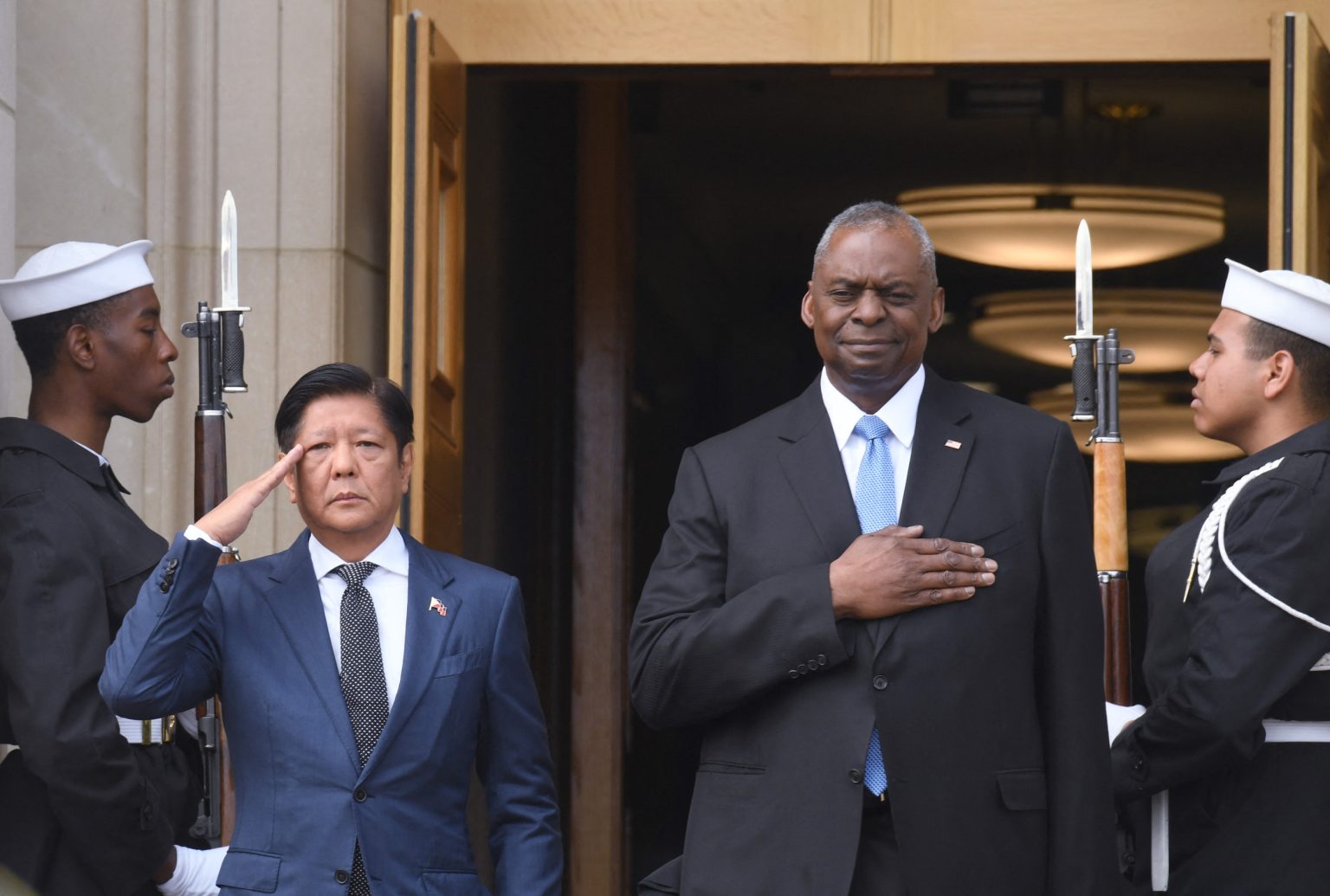Philippine President Ferdinand Marcos Jr. clarified the conditions that would trigger his country’s defense pact with the United States. He stated that if any Filipino serviceman is killed by an attack from a foreign power, then it would be time to invoke the Mutual Defense Treaty. This clarification came after recent confrontations with China in contested waters. The issue of the defense pact came to the forefront during Marcos’ visit to the U.S., where discussions on territorial disputes with China were a key focus. President Joe Biden and Japanese Prime Minister Fumio Kishida also participated in the summit.
During his visit to the U.S., Marcos met with Secretary of Defense Lloyd Austin, who reaffirmed that the Mutual Defense Treaty extends to both countries’ armed forces, public vessels, and aircraft in the Pacific, including the South China Sea. The clarification provided by Austin seems to have given more context to a provision that has been criticized as overly vague. Article 5 of the 1951 treaty states that an armed attack that results in the death of a Philippine armed service member would trigger the defense pact. There have been concerns about the lack of a clear definition of what constitutes an “armed attack,” with experts warning that China may exploit this ambiguity.
Chinese forces in the South China Sea, where most of the waters are claimed by China as its territorial waters, have been using aggressive tactics to deter the Philippines’ maritime activities in its exclusive economic zone. An exclusive economic zone is a designated area where the coastal state has sole rights to exploit natural resources. Recent incidents, such as Chinese Coast Guard water cannons damaging a Philippine supply boat and injuring service members during supply missions to a disputed area, have raised tensions between the two countries. Beijing has claimed that its actions were in defense of national sovereignty.
Geopolitical analyst Don McLain Gill has emphasized the need for a clearer definition of what constitutes an armed attack in the Mutual Defense Treaty. Without a firm operational definition, there is a risk that China will continue to exploit the ambiguity in the treaty’s language. The issue of what actions would trigger the defense pact remains a point of contention, with questions about whether firearms need to be used and if casualties on the Philippine side are sufficient. The lack of clarity in the treaty’s language has raised concerns about how it may be interpreted in the event of a conflict.
The recent discussions between President Marcos and Secretary Austin have shed light on the importance of clarifying the conditions under which the Mutual Defense Treaty would be invoked. By specifying that the death of a Filipino serviceman in an armed attack by a foreign power would trigger the defense pact, both parties have sought to provide a more concrete understanding of their commitments to each other. As tensions in the region continue to rise, it is crucial for both countries to have a clear and unified stance on how they will respond to potential threats, particularly from China, in order to maintain regional stability and security.








